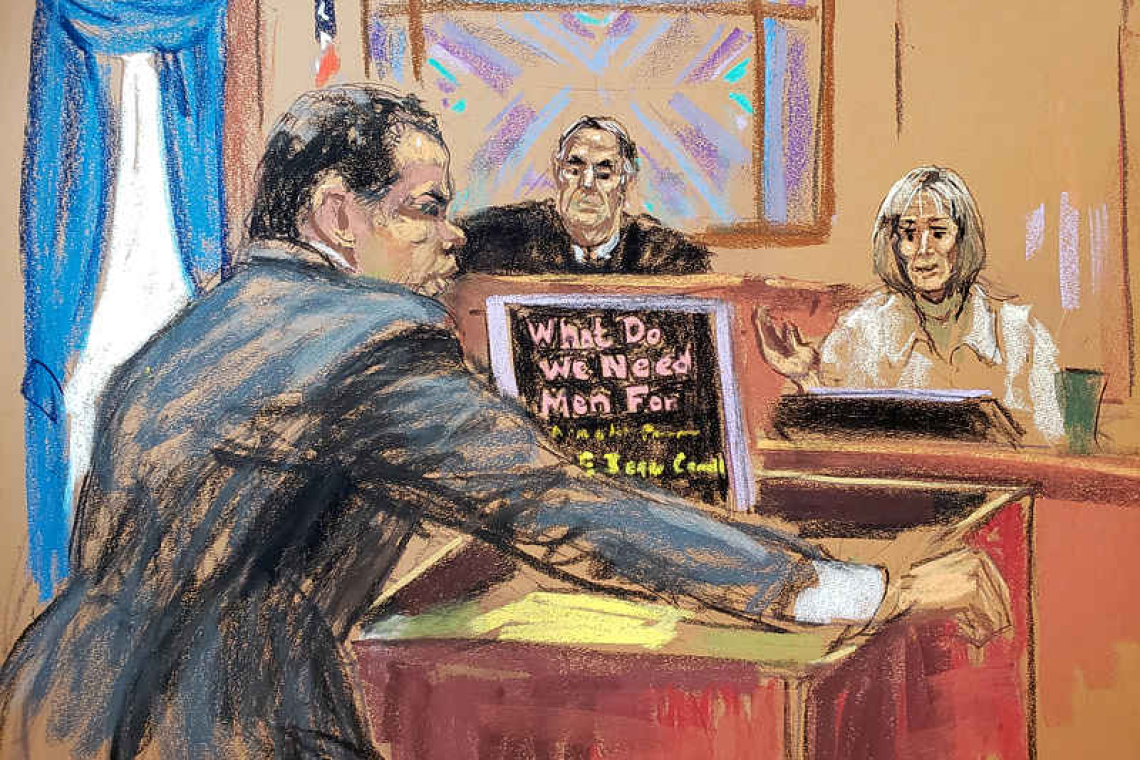Former Elle magazine advice columnist E. Jean Carroll answers questions from Trump lawyer Joe Tacopina during a civil trial to decide whether former U.S. President Donald Trump raped Carroll in a Bergdorf Goodman department store dressing room in the mid-1990s, and defamed her by denying it happened, in New York, U.S., on Thursday in this courtroom sketch.
NEW YORK--E. Jean Carroll, a writer accusing Donald Trump of raping her in the mid-1990s, pushed back during a cross-examination on Thursday, exclaiming: "He raped me whether I screamed or not." Asked by Trump's lawyer why she did not scream during the alleged attack, Carroll said she was panicked and "not a screamer" by nature. "People always ask, 'Why didn’t you scream?' It keeps women silent," Carroll told the lawyer, Joe Tacopina, on the third day of a trial in her civil case against the former U.S. president in Manhattan federal court. She forcefully denied Tacopina's suggestion that she waited more than two decades to come forward about her encounter with Trump in a Bergdorf Goodman department store dressing room to sell more copies of her 2019 memoir. Carroll, 79, said she felt compelled to go public after rape allegations against Hollywood producer Harvey Weinstein in 2017 prompted many other women to share their accounts of sexual abuse. "It caused me to realize that staying silent does not work," Carroll said. "Woman after woman stood up," Carroll said before her six-man, three-woman jury. "I thought, well, this may be a way to change the culture of sexual violence." After dozens of questions from Tacopina about her failure to scream, Carroll lost patience and raised her voice. "I'm telling you: he raped me whether I screamed or not," she said. Trump's legal team sought to undermine Carroll's credibility after she testified in graphic detail on Wednesday that Trump, now 76, raped her in the Bergdorf dressing room in late 1995 or early 1996. Tacopina pressed Carroll on her inability to remember exactly when the encounter happened, and suggested she made up the story to generate publicity for the memoir, "What Do We Need Men For?" "For two decades, Ms. Carroll, you never told the police and never revealed the story in your hundreds of columns," Tacopina said. Carroll acknowledged she did not immediately shower, see a doctor or call the police, and confided only in her friends Lisa Birnbach and Carol Martin. She said feelings of shame or fear of retaliation often kept women from reporting rape. Carroll said she also feared Trump would use his wealth against her. "One of my biggest fears absolutely came true," Carroll said. "He has two tables of lawyers here today."







